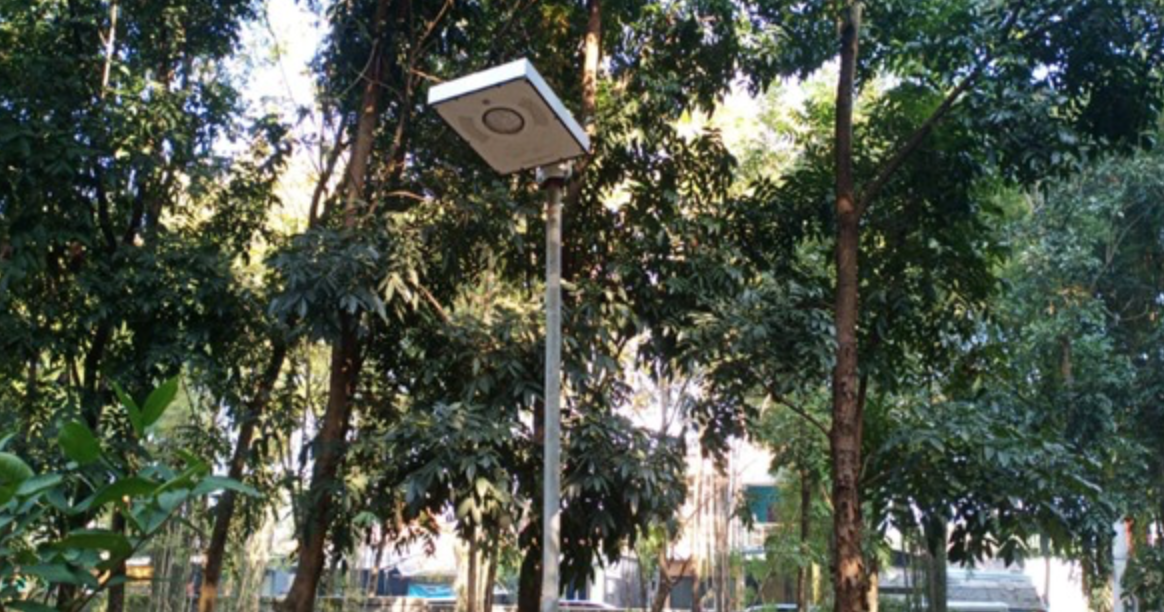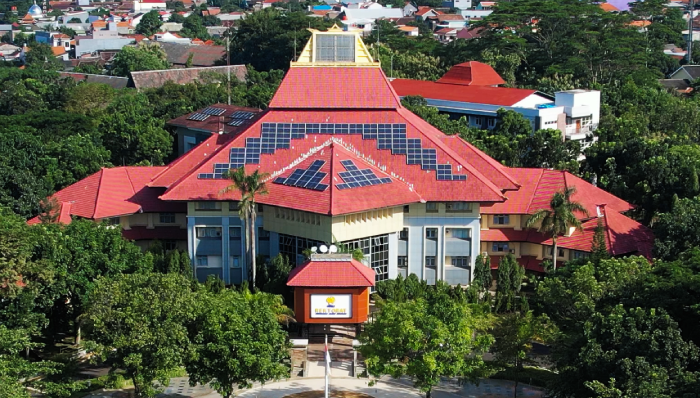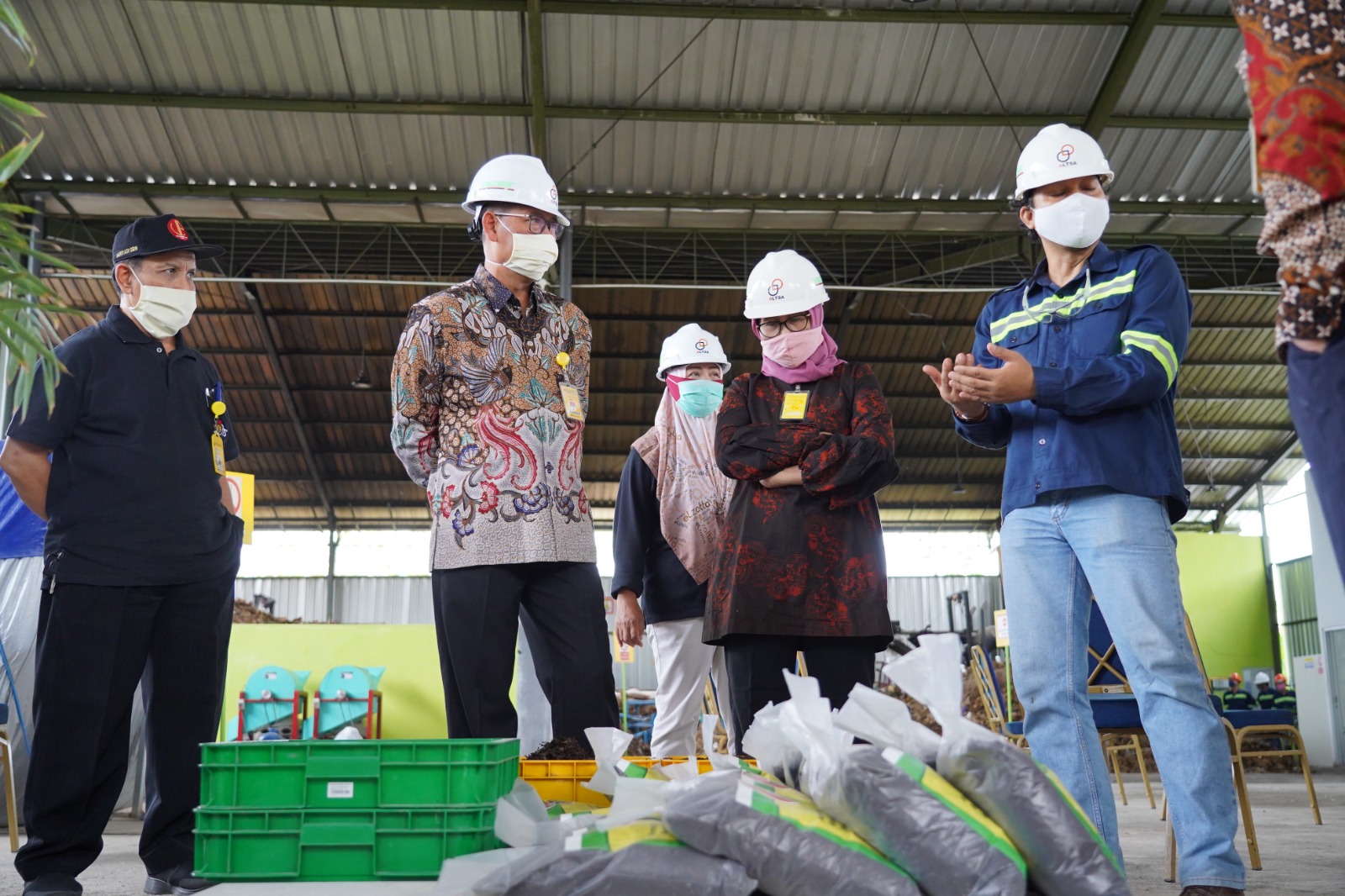Universitas Negeri Semarang(UNNES) remains committed to enhancing energy efficiency across its campus by implementing energy-saving devices. According to recent data, various types of energy-efficient equipment have been installed in multiple locations, including classrooms, lobbies, offices, and outdoor areas. This initiative is not just a part of UNNES’s effort to create a more environmentally friendly and sustainable campus, but also a significant step towards reducing our carbon footprint and preserving our planet.
LED lighting has played a significant role in energy efficiency. Of the 78,342 installed lights, 99.73% are energy-efficient LED types. These lights are used in nearly every room, including classrooms, lobbies, and offices, providing more efficient lighting than conventional incandescent bulbs. In addition, garden lights equipped with solar panels support energy savings by operating only at night.
Reflectors installed across the campus also contribute to distributing light more effectively, with 96.78% of the 9,768 reflectors replaced by energy-efficient models. Energy-saving neon lights, such as the Philips Essential TL5 14W, enhance lighting efficiency in various campus areas.
Regarding air conditioning, UNNES has replaced several conventional AC units with energy-efficient models equipped with digital inverters. Of the 1,231 installed AC units, 66.69% now use digital inverter technology, including 4-way cassette ACs that distribute air more evenly in large rooms and wall-mounted ACs with similar features, significantly reducing energy consumption.
Moreover, UNNES has introduced innovations in presentation technology. LCD projectors are gradually being replaced by interactive smartboards that serve as projectors and displays. This reduces the need for separate manual projector screens, thereby saving energy.
Additionally, the campus has replaced conventional desktop PCs in laboratories and offices with compact PCs that integrate the CPU and monitor into a single device. This change has reduced energy consumption by 68.28% across the 3,721 PCs in use on campus.
Overall, the average efficiency of energy-saving devices at UNNES has reached an impressive 77.24%. These efforts not only demonstrate UNNES’s commitment to environmental conservation but also pave the way for a more sustainable future, leveraging eco-friendly technology and contributing to national energy savings.
Through these initiatives, UNNES is not just setting an example, but leading the way for other universities in Indonesia in adopting energy-efficient technology to create more sustainable and environmentally conscious campuses. This leadership role is something we can all be proud of and support.




